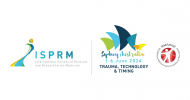Pre-reading materials
Please find following links to the pre-reading materials for this workshop:
- The world health report – health systems financing
- Sustainable health financing structures and universal coverage
- Strengthening public sector capacity, budgets and dynamic capabilities toward health for all
Session outline
Prospective determination of episode-related costs of patients with particular characteristics such as diagnosis, age, and sex and distributing respective budgets to hospitals and units based on the patient population is an important instrument in health care financing. However, budget estimates based on diagnosis related groups alone may not appropriately reflect the actual costs incurring with the delivery of optimal rehabilitation and possibly other health services. This is because two patients with similar diagnosis may have completely different baseline function, both in terms of total scores and patterns of problems that need be addressed. With the advance of tools for functioning assessment like ISPRM’s ClinFIT based on WHO’s ICF it is time to revisit the issue of prospective budgeting based on case mix. As the third health system indicator, importantly complementing mortality and disease, functioning should become an adjustment factor in diagnosis related groups or even the main baseline information for grouping (functioning related groups- FRG).
At the same time prospective budgets may lead to selection of “expensive” patient groups and, while containing costs, not necessarily imply improved outcomes. Performance oriented incentives for health care that actually improves people’s health thus seem an important element to health care financing. Again, in contrast to survival, disease control, or cure, functioning provides a measurable, continuous, and multi-faceted perspective on health that is of importance to people’s well-being and social participation. Using functioning improvement as key performance indicator for rehabilitation and other health services and rewarding teams and settings that actually increase people’s functioning over certain benchmarks may thus provide an important means to steer health care towards optimal outcomes.
The workshop thus wants to describe, discuss, and appraise the following topics: elements of prospective and performance oriented health services financing, baseline situation and challenges for financing of rehabilitation services in different ISPRM countries, models for integration of functioning information in payment systems, ideas for multi-national research programs, policy perspectives for ISPRM, ISPRM member survey on the topic. It includes lectures, discussions, and brainstorming exercises.
Learning outcomes
Participants understand the principles of prospective and performance oriented payment for health services, the participants learn about different ways information on functioning based on respective assessment tools could be used for prospective budgeting and performance oriented incentive mechanisms, participants reflect on challenges in their own country and settings, together ideas for joint research and input for ISPRM policy are developed.
Target audience
- Allied health
- Medical practitioners
- Students
- Trainees
- Nursing staff
- General public



